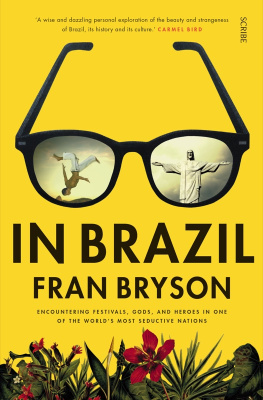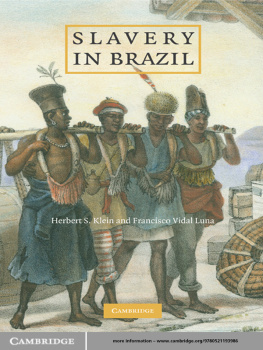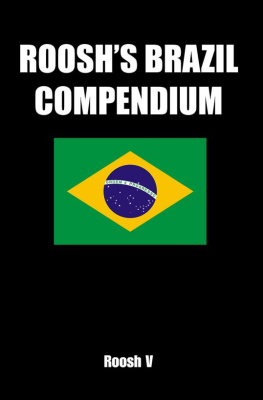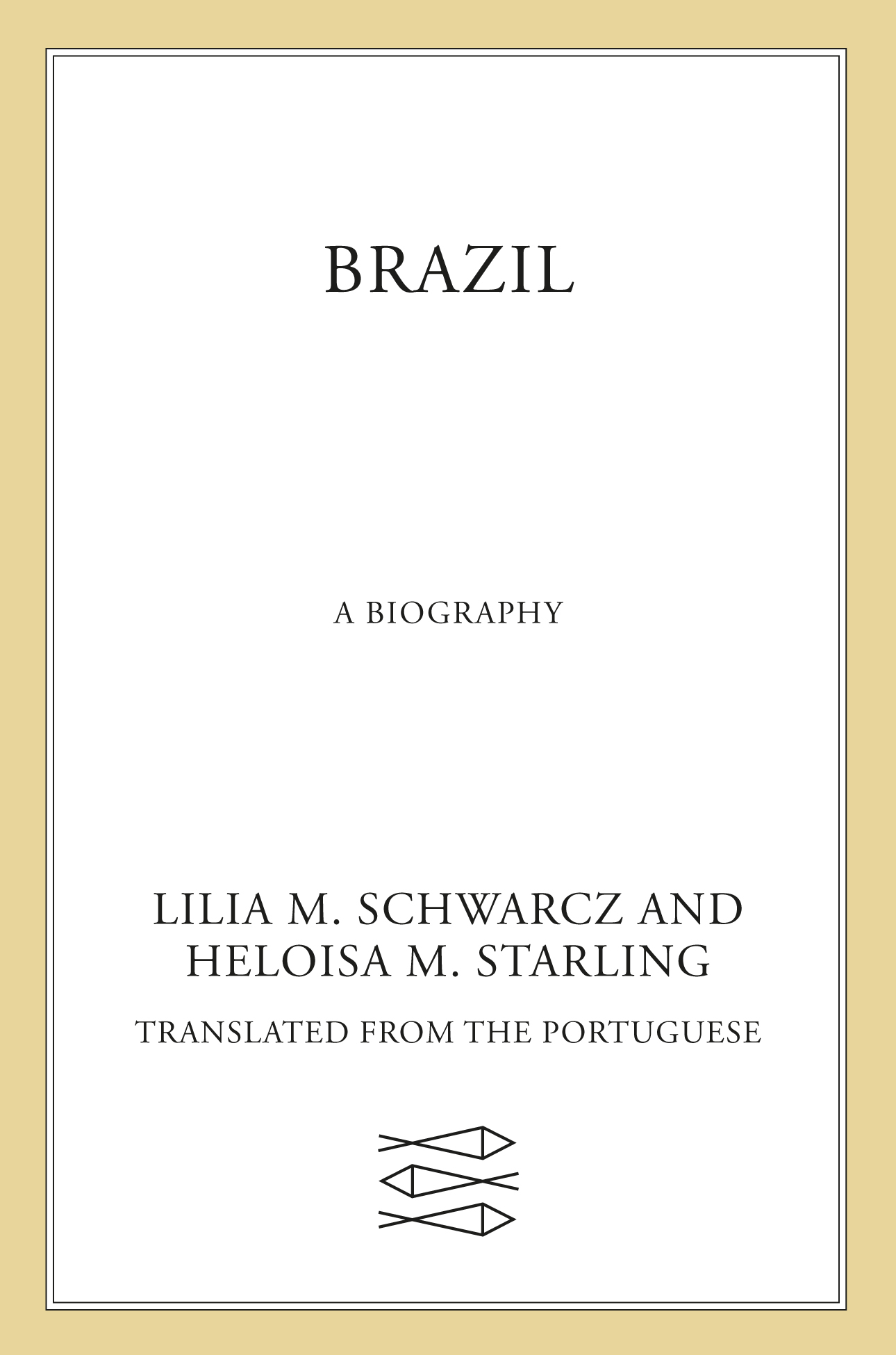Contents
Guide
Pagebreaks of the print version

The author and publisher have provided this e-book to you for your personal use only. You may not make this e-book publicly available in any way. Copyright infringement is against the law. If you believe the copy of this e-book you are reading infringes on the authors copyright, please notify the publisher at: us.macmillanusa.com/piracy.
For Luiz and Otvio, because, as Guimares Rosa used to say:
A book may be worth all that could not be written therein.
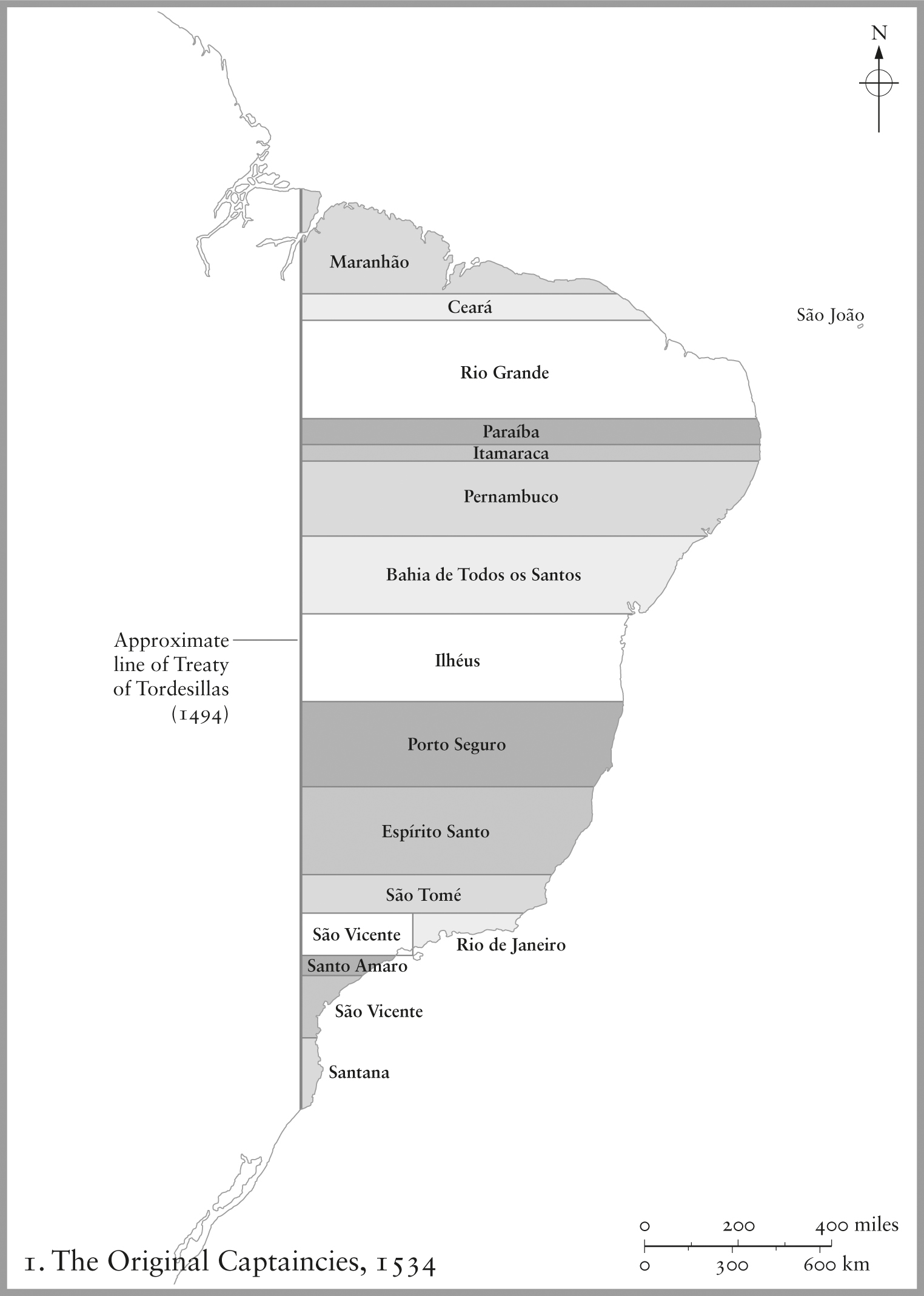
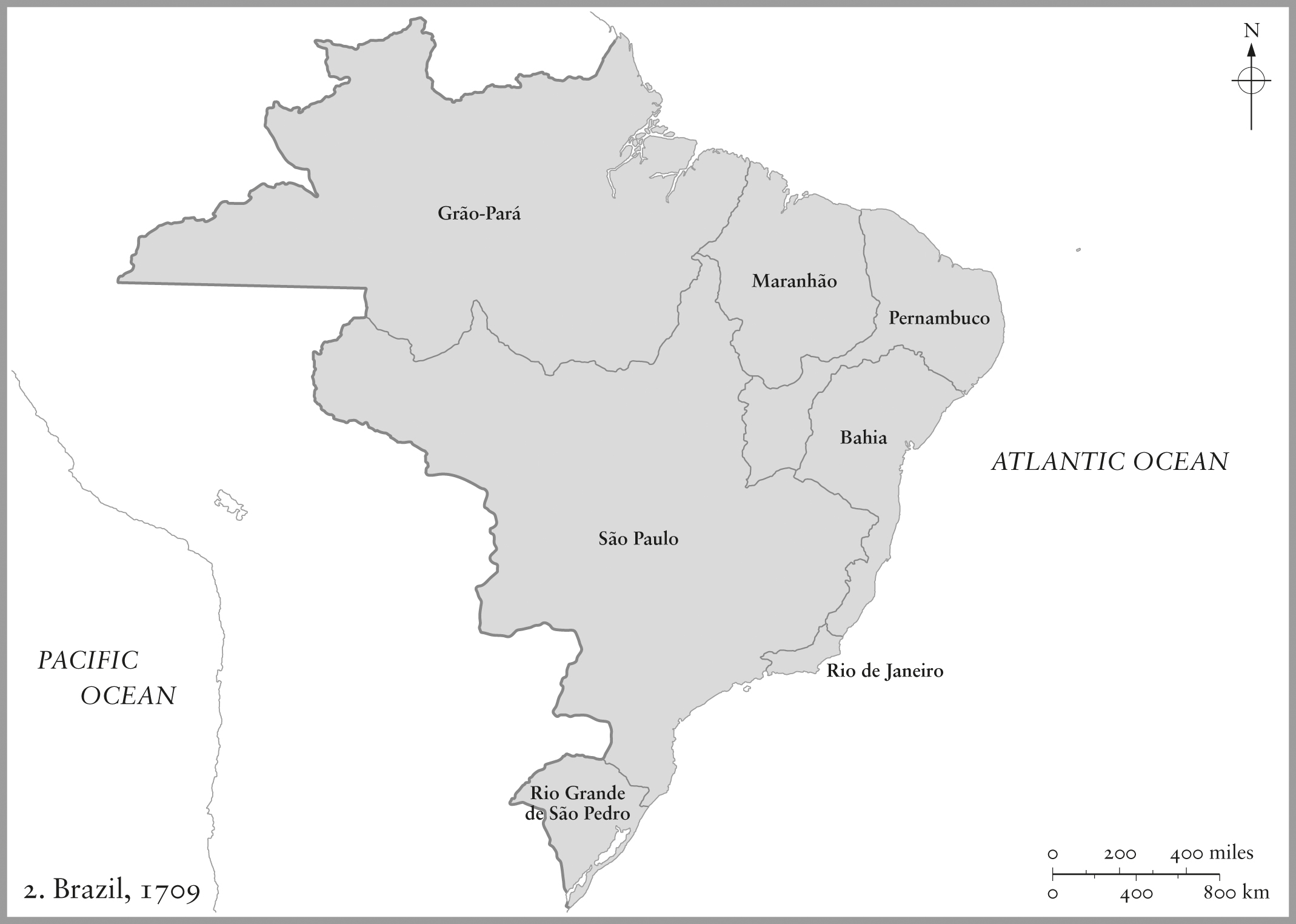
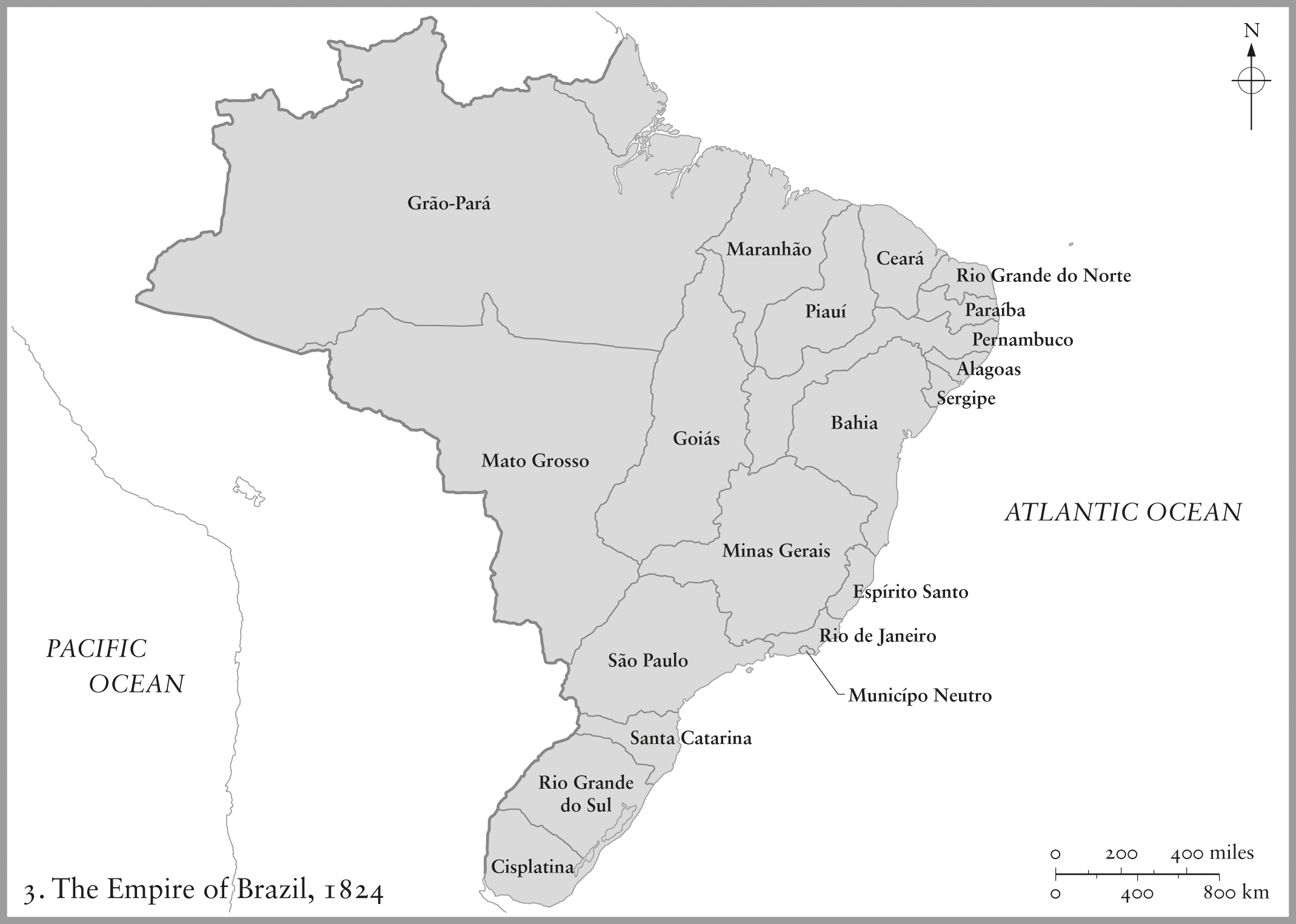
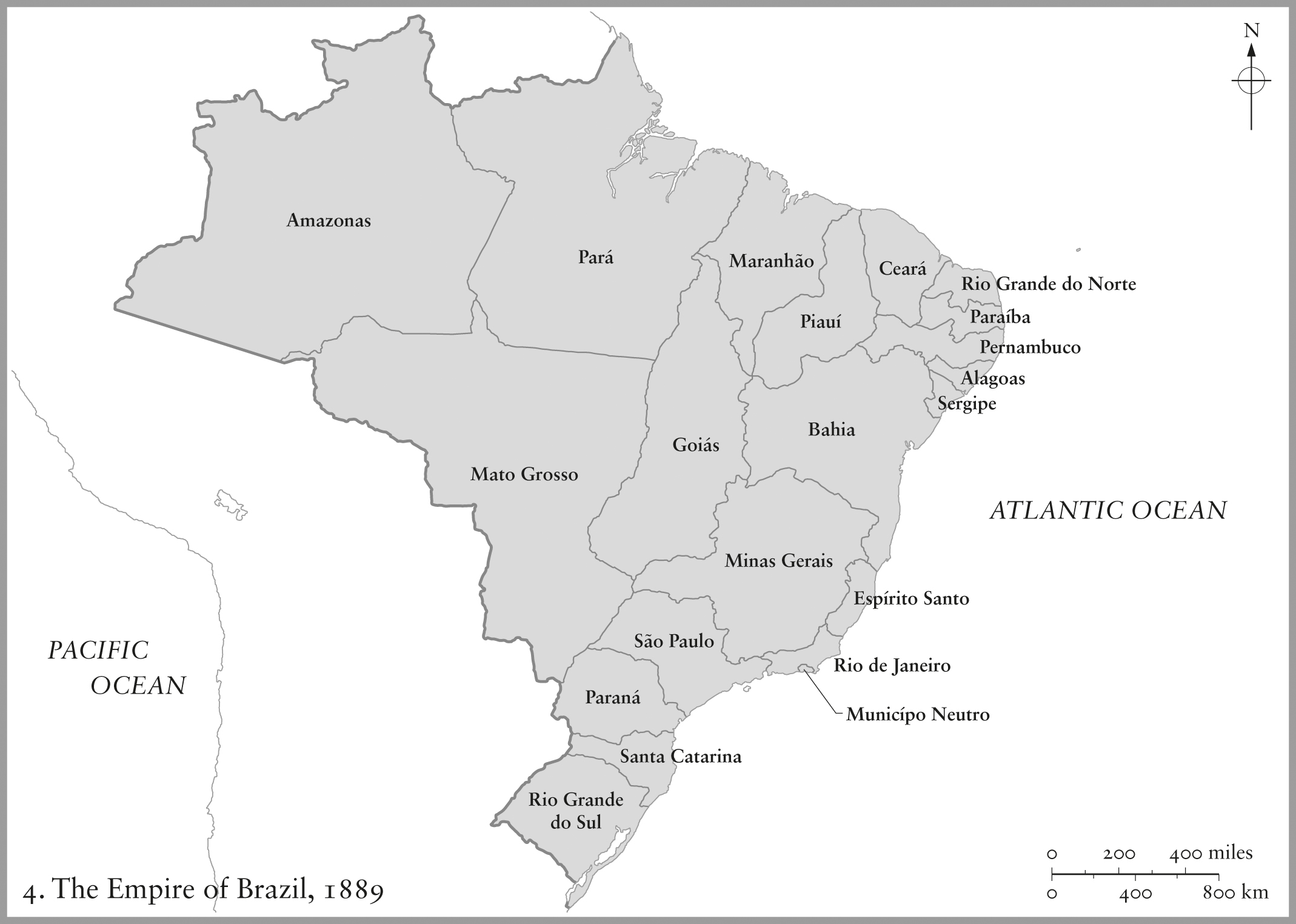
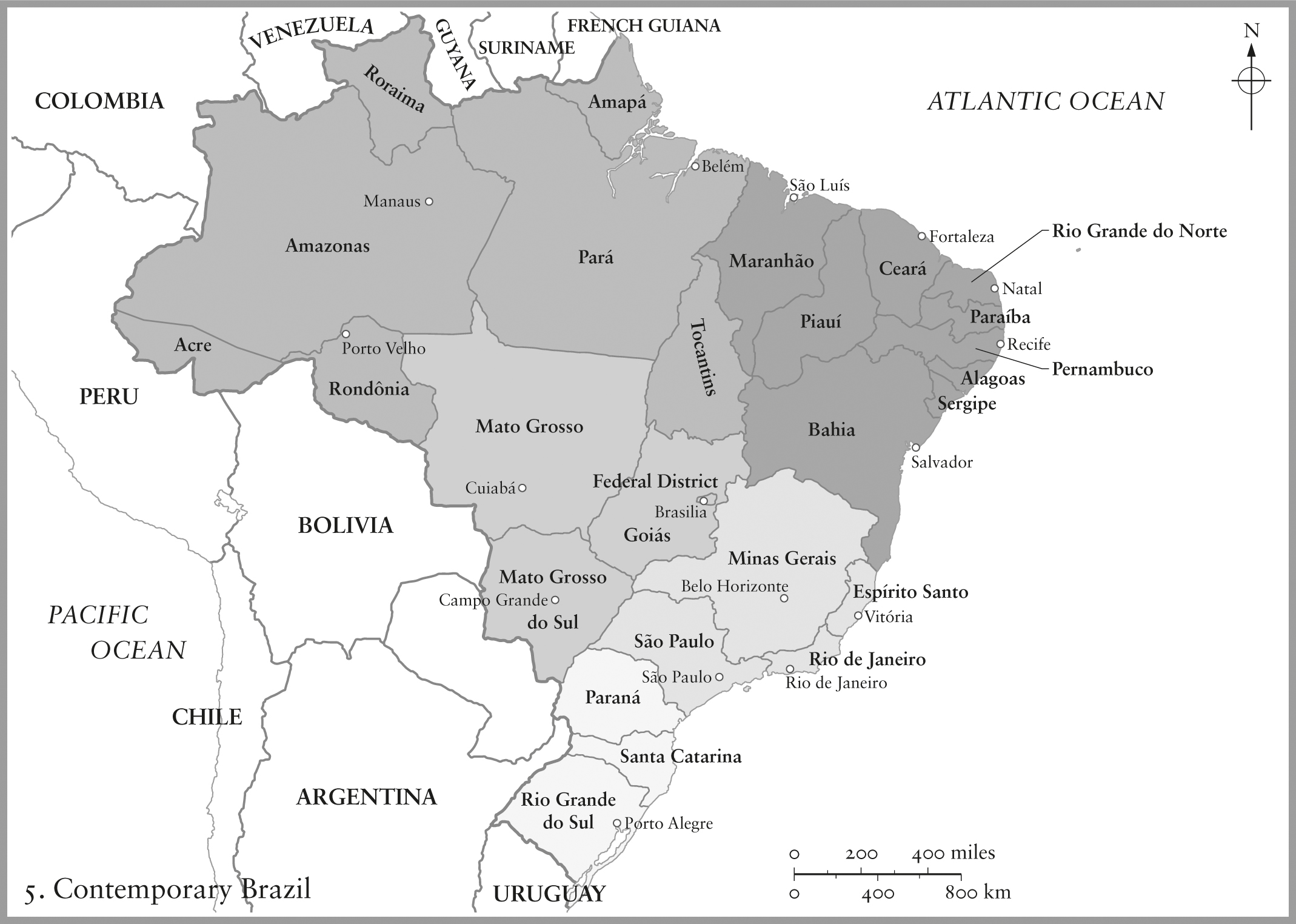
Its good to know the joyful reaction in the city [Rio de Janeiro] to the abolition of slavery, in 1888, was felt all over the country. It could not have been otherwise, as in everyday life the injustice of its origins was felt by all. Where I went to school, a state-run institution in Rua do Rezende, the children were delighted. I recall that our teacher, D. Tereza Pimentel do Amaral, a highly intelligent woman, explained to us what it really meant; but with the simplicity of a child, all that I could think was: free! free! I thought we could all now do as we liked; that from then on there would be no limits to the progress we dreamt of. But how far we are from that! Still so trapped in the cobwebs of prejudice, the rules and the laws! [] These memories are good; they have a whiff of nostalgia and lend us a feeling of eternity. Inflexible time, the offspring and brother of Death, gradually kills aspirations, destroying our hopes, leaving us with only sorrow and our recollections of the past often mere trifles, but which are always a consolation.
The author of this passage is Lima Barreto. Journalist, essayist and columnist of the city, he was one of the few Brazilian writers to define himself as black both as a man and in his writing and this despite living in a country where the censuses showed that the majority of inhabitants were black and mestizo. The passage does not appear to have been written for posterity. This emotional outburst was scribbled on the back of a piece of paper in the War Ministry, where the writer worked as a clerk; a government employee, relatively low in the hierarchy of civil servants.
His father, Joo Henriques de Lima Barreto, who had connections to the monarchy, was one of the first to lose his job under the new republican government; he found employment in a warehouse and was subsequently put in charge of an asylum. In 1902 he was diagnosed as mentally insane and forced to retire from his government post. Insanity, which at the time was thought to be a result of a racial degeneration resulting from miscegenation, was to pursue his son throughout his life; Lima Barreto was interned in the National Hospital for the Insane on two occasions, in 1914 and 1919. The words madness, despondency and exclusion frequently appear in the writers work and to a large extent define his generation.
There seems to be nothing random or arbitrary about the passage. It reveals some of the persistent traits of Brazils short history; at least, the history that begins in 1500 with the countrys discovery, as it is referred to by some, though invasion would be a more accurate term. Although these five centuries of the nations existence have been marked by a wide diversity of events, in differing political and cultural contexts, certain stubbornly insistent traits can be observed. Among these has been precisely the challenging and tortuous process of building citizenship. As this book will demonstrate, there have been occasions when the public has demonstrated civic-mindedness and enthusiasm, for example when slavery was abolished in 1888, as mentioned by Lima Barreto. When Princess Isabel announced the long-awaited decree from the balcony of the Pao Imperial , people crowded into the square below. Although eventually enacted by the government, the law, known as the Lei urea , was largely the result of the pressure of public opinion. As important as it was, the law nonetheless did very little to integrate those Brazilians who had enjoyed neither citizenship nor rights for so long. It illustrates a recurring pattern. Many such acts were followed by political and social setbacks: projects that failed to produce an inclusive society; a Republic devoid of republican values, as described by Lima Barreto.
This is the reason why comings and goings, advances and setbacks are so much a part of Brazilian history, a history that might be characterized as mestizo, in a sense, like the Brazilian people. It is a history providing multiple, and at times ambivalent answers, one that cannot be interpreted in terms of the traditionally celebrated dates and events; nor can it be traced through objective considerations alone, nor in terms of a clear-cut evolution. Brazils history is an amalgam generating different forms of memory. It is mestizo not only because it is a mixture, but also, clearly, a separation. In a country characterized by the power of the landowners many of whom own immense estates, each the size of a city authoritarianism and personal interest have always been deeply rooted, undermining the free exercise of civic power, weakening public institutions and consequently the struggle for peoples rights. There is a popular Brazilian proverb, if you steal a little youre a thief, if you steal a lot youre a chief, as if to legitimize the notion highly controversial and much discussed today that the wealthy and powerful are exempt, citizens above suspicion.
There is a further trait which, as a social rather than a natural construction, is not endemic, but is nevertheless shockingly resistant to improvement and a constant presence in Brazilian history. The logic and language of violence are deeply embedded determinants of Brazilian culture. Violence has characterized Brazilian history since the earliest days of colonization, marked as they were by the institution of slavery. This history of violence has permeated Brazilian society as a whole, spreading throughout, virtually naturalized. Although slavery is no longer practised in Brazil, its legacy casts a long shadow. The experience of violence and pain is repeated, dispersed, and persists in modern Brazilian society, affecting so many aspects of peoples lives.
Brazil was the last Western country to abolish slavery and today it continues to be the champion of social inequality and racism, which, albeit veiled, is equally perverse. Although there is no legal form of discrimination, the poor, and above all black people, are the most harshly treated by the justice system, have the shortest life span, the least access to higher education and to highly qualified jobs. The indelible mark of slavery conditions Brazilian culture; the country defines itself on the basis of gradations of skin colour. Whereas those who achieve success become whiter, those who become impoverished become darker. But Brazilians self-identity does not end with this porous sense of ethnicity, for there is racial inclusion in many of the countrys best-known cultural activities: capoeira, candombl, samba, football. Brazilian music and culture are mestizo in both their origin and singularity. Nevertheless, the numerous processes of social exclusion cannot be ignored; they are reflected in the limited access to entertainment and leisure, to the employment market and to health services (affecting birth rate), and in the daily intimidation by the police, where racial profiling is the norm.



